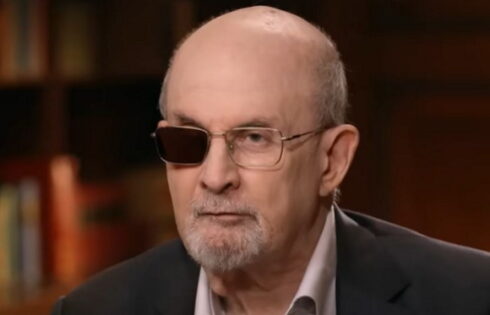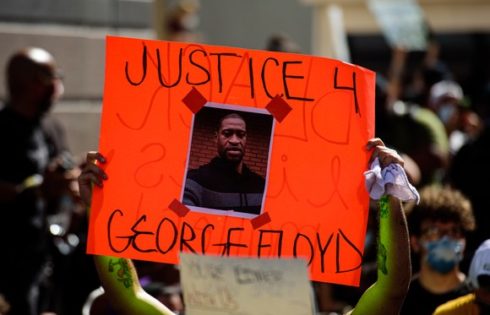
Scholar says songs expose ‘potential terrors of a post-Roe America’
An English professor at Middlebury College is applauding two country musicians for performing songs this summer about the “right” to end unborn babies’ lives in abortions.
William Nash, who teaches American studies and English at Middlebury, wrote in a piece at The Conversation about new abortion songs by artists Molly Tuttle and Jason Isbell, saying they expose the “potential terrors of a post-Roe America.”
“Put another way, these songs succeed in putting human faces on issues that have been depersonalized for political ends,” Nash wrote recently, referring to pregnant mothers and not preborn babies.
The music “helps maintain compassion and empathy in discussions of reproductive freedom,” and creates “an intimate portrait of a woman’s struggle for bodily autonomy that captures the potential terrors of a post-Roe America,” he continued.
Tuttle’s bluegrass song “Goodbye Mary,” released in July, tells the story of a pregnant woman who aborts her unborn baby with a “wire” after her partner, Thomas, abandons her. Thomas “promised to build a rocker” and a “cradle” to take care of their baby, but he leaves instead.
Distressed, Mary goes to a doctor who refuses to do the abortion, saying her “baby’s too far ‘long/Too far ‘long, ‘long.” The song ends with Mary in a “cell,” suggesting she was arrested for an illegal, late-term abortion, and a plea for Thomas to “put pretty flowers” on their dead baby’s grave.
Nash described the song as “an intimate portrait of a woman navigating a complex landscape made more perilous by the erasure of her rights.”
He criticized “male doctors” for refusing to “care” for women like Mary, suggesting aborting viable, late-term unborn babies should be part of regular medical practices.
However, according to a fact sheet by the American Association of Pro-Life OB-GYNs, 93 percent of practicing obstetricians and gynecologists do not provide elective abortions at any point in pregnancy.
Later, Nash brought up another new song, “White Beretta,” released in June, which describes country singer Jason Isbell’s regrets years after his teenage girlfriend had an abortion.
In the lyrics, Isbell admits he should have been more supportive when his girlfriend got pregnant, and acknowledges he “could have been somebody’s father.” However, the singer also thanks his former girlfriend for her “grace/For the dreams we got to chase” because she chose abortion.
To Nash, both songs are powerful because they do not “oversimplify” the complex circumstances and emotions involved in an abortion. At the same time, he said the artists also do not waver “from the belief in the rightness of the decisions their respective characters make.”
Only twice did Nash mention the “fetus,” or unborn baby, the other human being involved in every abortion.
Although he acknowledged abortion involves the “destruction of their fetus” and often can be an “unbearable choice,” his stated desire for “compassion and empathy” seemed to apply solely to women and not aborted babies.
Throughout his piece, he repeatedly referred to abortion as a legal “right” and implied it also is a moral one.
However, in 2022, the U.S. Supreme Court ruled that the Constitution does not include a right to abortion in Dobbs v. Jackson. The ruling overturned Roe v. Wade, a 1973 decision that claimed abortions up until an unborn baby is viable were a protected right under the constitutional right to privacy.
Since the Dobbs decision, more than a dozen states have limited or banned elective abortions. However, others have legalized abortions up to birth.
About 64.4 million abortions have been performed in the past 50 years in the U.S., according to a fact sheet by National Right to Life.
MORE: Christian professor fired over his ‘Little Hitler’ music video about sin
IMAGE: Shuttestock
Like The College Fix on Facebook / Follow us on Twitter







Please join the conversation about our stories on Facebook, Twitter, Instagram, Reddit, MeWe, Rumble, Gab, Minds and Gettr.